Welcome to all new readers of the Paths Less Trodden interview series. Join other smart, curious folks by subscribing here:
Paths Less Trodden is brought to you by Tshepo, one of South Africa’s most exciting and sought after fashion brands.
Tshepo Mohlala’s story, values and life philosophy are a perfect match for everything that I am striving to show in this newsletter. From the most humble beginnings, Tshepo (meaning hope), the self-taught stylist and designer, has built his business from the ground up, and is recognised as one of South Africa’s hippest denim brands.
He is a born fighter and entrepreneur of the best kind. Follow his rise to international stardom on Twitter and Instagram. Or follow the celebrities and taste makers who love him by checking out the beautiful Presidential Slim Fit jeans here.
Hi friends 😀 ,
In this Paths Less Trodden episode, I talked with ex-Royal Navy leader James O’Malley about counter-piracy operations in Somalia, saving lives in Iraq and Afghanistan and nearly losing his own on Mount Everest.
You can enjoy it now both in written form below and in audio above. Enjoy!
You can also subscribe to all future podcasts on Apple and Spotify.
I hope you enjoy it!
For a man who led the fight against Ebola in Africa, who was lead operational medical planner on counter-piracy operations in Somalia with the EU Special Forces and who saved numerous lives among enemy lines in Iraq, Afghanistan and the Far East, directing repairs to wounded, gnarled soldiers, James O’Malley’s own near death experience on Mount Everest in 2019 was unexpected.
The first lady of the Himalayas pays no heed to past record, conventional fitness measures or this mountain expedition leader’s imperative to protect his inexperienced troops. Altitude sickness is bad luck of the draw, James suffered a pulmonary edema on top of Everest (vessels bursting, filling the lungs with blood), his left lung ultimately collapsed and because the Chinese would not open up airspace on the Tibetan side of the mountain, James spent 12 hours on the back of a yak, in and out of consciousness, descending to basecamp. And that’s just the start of it…
A winding road
James O’Malley was born in Wales, grew up in the West of Ireland and now lives in Devon. Badly dyslexic, he battled through school but found the upside of this disability an innate ability for problem solving. There were no major influences or stand out ambitions; he hopped from jobs in motor engineering and car sales, found it insufficiently creative and was looking for the next thing.
Life changed at 20 when his older brother was killed in a motorcycle crash. He had been academic, sporty, with an appetite to join the military or the police. James left home for London, took work in close protection (“not glamorous, you spend more time looking at peoples’ fences”), trained as a paramedic, fell into the Navy after answering an ad in a window and was soon in Iraq in 2003 kicking off a 15 year career planning and leading medical ground operations in volatile locations.
With his Ebola wisdom amassed in Africa, James provides insightful comparison into the virus which is now top of the pops:
“COVID is much cleverer than Ebola. Because a good virus spreads. Ebola was not easy to contain, but it was containable because most people died from it.”
Having been on the front line of a deadly virus, James’s frustration to today’s response is understandable:
“With the lessons we learned from the Ebola crisis, I did free consultancy work for the NHS. Because I wanted to do my bit. I explained all the lessons we learned and not one of them was heeded, including PPE.”
The consequences of that negligence are clear.
Retirement from the military came because James’s wife was mentally exhausted with the absences and uncertainty, “especially when I was in Africa, because things were so fluid on the ground. There was an incident that happened out there, I can't really go into it. But there was a big attack, it was all over the media and my wife didn't hear from me for 48 hours because of media blackout. We had a chat when I got home; she didn't want to live thinking that I was dead.” Quite fair enough. Occasional opaque references to dangerous and unstable incidences only spikes the intrigue. Similarly with Somalia: “I can't talk about it. I'd have to be so vague, it probably wouldn't make any sense.” Come on interviewer, work harder.
Fighting the good fight
“So we helicoptered in and within 10 minutes there were rounds flying, we got shelled, we had to move our positions. I remember thinking, you know what, this is probably the most exciting thing I've ever done in my life. I was with the guys that I trained with. I knew that our training was really good. I knew my medical skills were really good. I knew that if any of my friends got hit, I was there and I could save their lives or do everything I could.”
In Afghanistan, James was on the ground with the medical regiment, his job to co-ordinate medics on the front lines, “guys who had the training, but often didn't have the experience. And when you're dealing with traumatic amputations or gunshot wounds in the heat of battle, the first few times you do it, it's terrifying. You're never worried about yourself, you just switch into medical mode. All you're thinking about is what do I need to do to save this person's life. You’re trying not to freak out when things are going wrong around you and people are screaming your name. That's hard.”
“You do become a bit of a dad to them all after a while. And you do care about them; the amount of sleepless nights I had over it, especially when there was a big medical operation going on, I would have happily gone out and done the operation myself, because I had the medical experience. But that wasn’t my job.”
Improving performance, community at the core
After leaving the military, James founded Fusion Community Initiatives to share his experiences on leadership development and team building, helping companies improve performance while putting community and corporate social responsibility at the centre. The Everest challenge, in aid of Wooden Spoon (the children’s charity of rugby) with its aim to break a Guinness World Record for the highest altitude game of rugby, reflects James’s commitment to looking after others, both as leader of the expedition and fundraiser.
“Everyone's got their own Everest every day they go to work”
I wondered whether Fusion client ordeals ever seem trivial compared to the severity of military confrontations. How hard is it to readapt to the relative frivolity of daily civilian life? James’s response has become more sanguine and tolerant over time.
“In Somalia I saw children literally starving. They had nothing, and they were happy. When I came back, my daughter was complaining that she wanted the newer iPhone. I had less sympathy than my wife who simply saw it as her reality. In the end, we brought that ethos into the way we do business. Regardless of what I did in the military, our clients’ problems are no less important.”
Man and mountain
“I had this obsession for climbing volcanoes. I always thought as a kid that was a cool thing to do. I was a mountain leader in the military, I climbed in Europe, did Mount Fuji in Japan, a few in Malaysia.”
It was Fusion’s existing relationship with Wooden Spoon charity which brought Everest into close view. With his military background, James was asked to lead the jaunt. Group know-how was mixed, from hardened adventurers to the happy-go-lucky amateur who at first training was armed with a Tesco’s bag for his kit and wearing everything else. Which teaches you that appearances can be deceiving, as James ruefully reveals:
“When we were on Everest, he was one of the best guys there, out in front the whole time. He smokes, he drinks - and he was perfect. And I was the one that got injured!”
Feel the pain
Limited exertion after a cigarette puff on terra firma can be taxing enough, let alone before traversing the Khumbu Icefall at altitude. James gives perspective and flatters my childish curiosity:
“If you were planning to walk Snowdon every day, five times a day, you would probably do it. You add altitude into that mix and it’s a whole different ballgame. At base camp at 5,500 metres, by the time you’ve got up and dressed, you're pretty much exhausted. You go to get breakfast and by the time you get there, you realise you forgot something. It's a weird conversation we have. Do I go back and get it or leave it behind because I feel exhausted? And then as you climb, the altitude gets harder, it gets more and more difficult. To walk 3km at altitude is exhausting!”
“Captain Hindsight is a hoofing bloke”
The key tenet that James preached to his troops was that nobody would get to the top nor down by themselves. Ignoring his own lesson nearly cost him his life as over the course of the climb he added 25% to his own workload a day, shuttling up and down ensuring everyone’s safety, hanging back with strugglers. Here was Dad, team player and alpha male in one: “I didn't ask for help when possibly I needed it. I took it all on my shoulders.” Despite James’s exhortations “to buddy up”, he was no-one’s buddy. He lasted to the final day of the trek, but the crowning descent eluded him.
Breathless, but steadfast
“I've just got to crack on and make the best of it and get myself home. And my driver coming down that mountain was I'm getting home to see my wife and kids. There were no ifs, buts or maybes.”
James’s journey off the mountain was slow and treacherous. The 12 hour yak ride was followed by another 12 hours bouncing around in a minibus where he experienced respiratory arrest. That’s stopping breathing to you and me.
He landed up in a mediocre Nepalese hospital, whose attachment to alternative medicine was frustrating to a man who understood the subject. “I knew the steps that were supposed to be happening and they weren't happening in the correct order.” In his breathless state, James pleaded with the consultants in A&E to follow scientific procedure, but they refused. He was too weak to fight.
James desperately needed to get back to the UK for better treatment but altitude sickness held back the return. Antibiotics and alternative therapies were causing severe infections. The left lung had completely collapsed but the right one performed sufficiently to allow flight. The pain was excruciating; stuck in Qatar on a long layover, James doubled up on painkillers against all medical advice and got back.
It would get worse before getting better. In the UK, he had 3.5 litres of pus removed from his lung which provoked pancreatitis and liver trouble. Super fit before, James was now skin and bones.
Physical and mental restoration
“You’ve got to stop fighting. You’ve nearly died several times.”
The recovery was physically debilitating – James declined from 125kg to 82kg, lost his hair and beard, had liver damage and was a lung down. But it was taking an immense mental toll too. Seven months after the accident, James was in and out of hospital, urging his rehabilitation on, but with sinking morale. Through a friend, he connected with Rock2Recovery, a charity for armed forces and veterans suffering from stress. He didn’t think he had PTSD, but something was wrong, he wasn’t sparking.
A lady from R2R visited James and asked him upfront and repeatedly, ‘When are you going to stop fighting?’ James resisted the message’s more subtle implication, but it percolated in him and began to make sense: “I fought so hard to get off the mountain and to get back home. I just didn't switch off from that. When the penny dropped, it was like somebody flicking a switch in my head. And that was it, I could relax. I didn't have any more counselling.”
Unlocking the secret
R2R encouraged James to imagine his life as a cup; a cup into which every experience flows. The image stuck with him as he realised the historical accumulation: near death on Everest, constantly missing family, recent hair loss and physical degradation. There’s some volume already, and now let’s add the military actions, the tragic death of an elder brother. He needed to stop and empty an overflowing cup, let it all go and start again. Another clear, uncomplicated image, and one that James has used positively with others since many times.
“I was asked would you do it again? 100% I’d do it again. I saw my wife's eyes and thought to myself, oh my God you're such a dick. After everything you just put her through. It was the first time the penny dropped how close I was to death and the effect it would have had on everyone else. I still want to go on adventures. I would think twice about it but if you ask me, would I do it again? Yeah, I probably would.”
Quick Fire
What's the kindest thing anyone's ever done for you?
“I think when somebody told me to let it go, and just be happy. That was a stumbling block I had. And everything my wife does for me, it's amazing. Everything I put her through during my military career. The kindness she showed me. It's sometimes tough to swallow, as it is with all marriages, but I know she's always got my back.”
What’s your most powerful memory?
“When my children were born. I’m actually a grandfather; I’ve got a two year old granddaughter.”
Tell us something interesting about yourself most people don’t know
“I’m quite a geek when it comes to history. I like to think I'm quite cool. But when it comes down to it, I love all that sort of stuff. I find it fascinating. World War Two onwards. I just find it super interesting.
Which book do you gift most regularly?
“An Evening with Ranulph Fiennes or Barack Obama’s A Promised Land.”
What's your desert island music?
“Anything from classical through to AC/DC. Garage music I quite like as that was an era in my life.”
Winding down away from work, tell me about your hobbies
“I've got two Rhodesian Ridgebacks. They're quite big dogs, and they are the best thing that I've ever had. When I started the business I had so many ideas. I'm not from a business background so I've made lots of mistakes. But I used to get up at four in the morning and my mind would be spinning because I'd have all these ideas of what I want to do in marketing and branding; all new words for me coming from a medical military background. I take the dogs up on Woodbury common, do two hours walking with them, sort my head out then start the day.
I love doing or anything on the water as well. I love kayaking. We’re shortly buying a rib which is quite exciting. Anything outdoorsy completely chills me out.”
I hope you enjoyed this interview. Please add your comments below, and help spread the word by sharing this post with others you think would like it. Thank you! 🥳
Next time, I will be sharing my conversation with Jack Butcher. Jack spent 10 years working in Fortune 100 advertising in NYC as a creative director for multi-billion dollar brands.
Fun, but the opposite of freedom.
So, in search of freedom, he started his own advertising agency. No fun, and even less freedom.
After two years of iteration, he figured out how to transition to highly-specialized (and fun) consulting, and a product business that scales infinitely. Jack’s business, Visualize Value now makes $100K/month with 99% profit margin…
Subscribe here to make sure this story lands in your inbox!





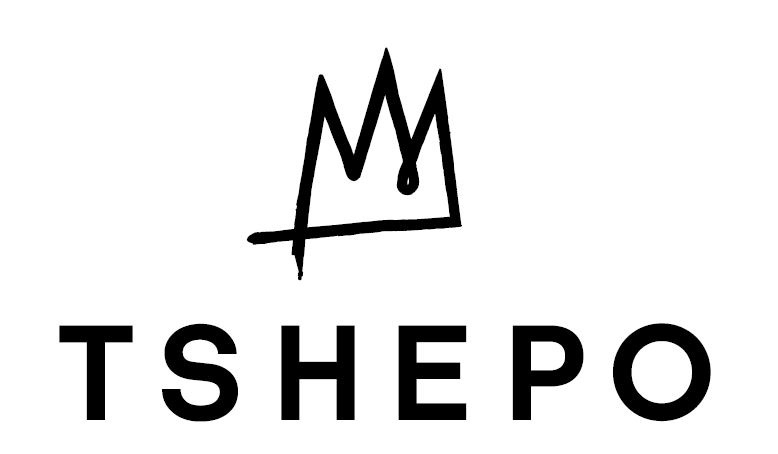



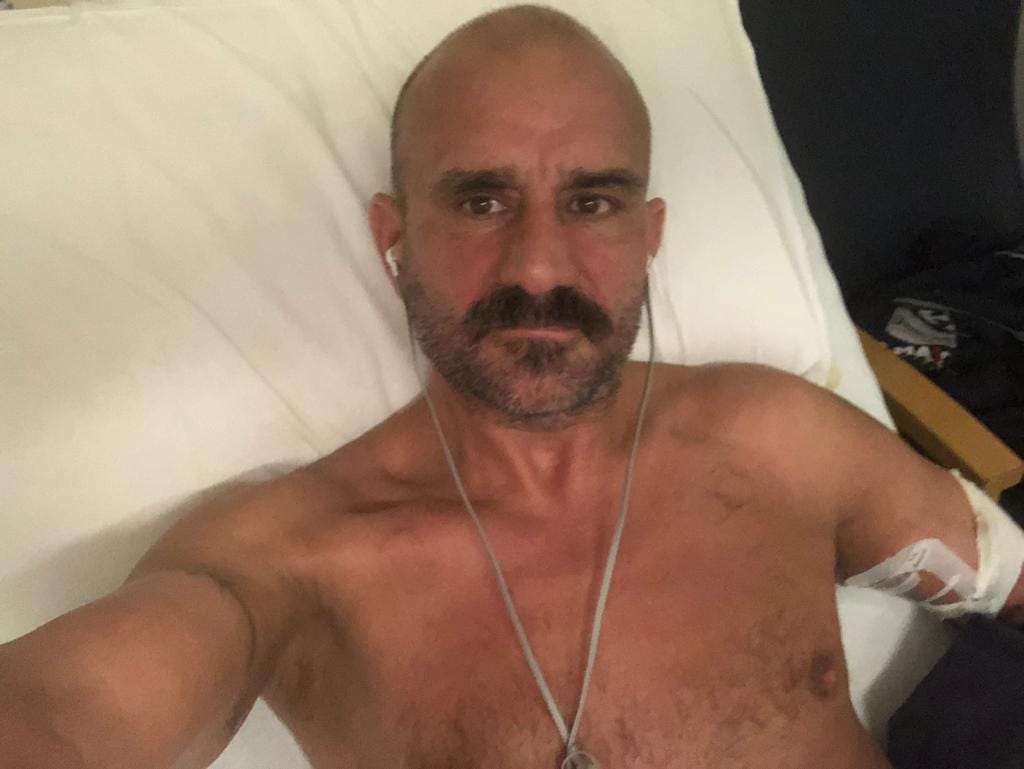





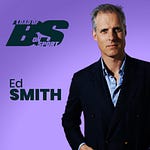

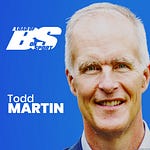
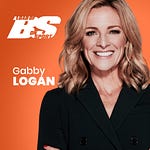
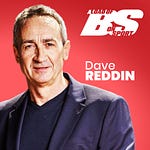

Share this post